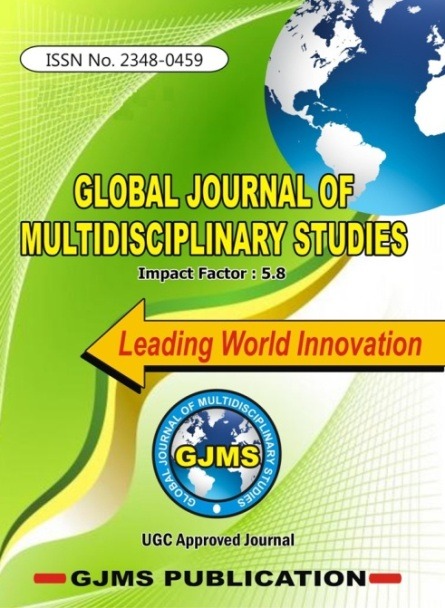TikTok Economics
Keywords:
TikTok, Culture, Technology, Social Media, PEST analysisAbstract
New, improved and personalized products are always welcomed by the early adopters in the growing markets. The same story has been repeated with TikTok when they surprise social media users with new avenues in the social platform. The company got the fine dancing tune with Indian customers which resulted in TikTok’s overwhelming success in Indian market. All of a sudden company started facing the heat of Indian Consumer. The case discuss about the cultural misinterpretation of the company about Indian market. TikTok felt the jolt for not following the socio-cultural norms of the country while fitting in the country’s legal framework or in other words took advantage of the ambiguous legal policies. It is a classic case of a product rejection by countrymen for not appropriately understanding the market forces.
References
D Pandey, V Agarwal, “E-commerce Transactions: An Empirical Study”, International Journal of Advanced Research in Computer Science and Software Engineering, Vol 4, Issue 1, pp. 669-671, 2014
ShwetaSankhwar, V Singh, D Pandey, “Requirement engineering paradigm”, Global Journal of Multidisciplinary Studies, Vo; 3, Isue 3, pp.1-8, 2014
T. J. Ansari, D. Pandey and M. Alenezi, STORE: Security Threat Oriented Requirements Engineering Methodology, JournalofKing Saud University – Computer and Information Scienceshttps://doi.org/10.1016/j.jksuci.2018.12.005
S Sankhwar, D Pandey “Software project risk analysis and assessment: A survey”, Global Journal of Multidisciplinary Studies Vol. 3, Issue 5, pp. 144-160, 2014
D Pandey, U Suman, AK Ramani, “an approach to Information Requirement Engineering”, 2011 International Conference on Information Science and Applications, Korea, pp. 1-4, 2011
D Pandey, U Suman, AK Ramani, “Security Requirement Engineering Framework for Developing Secure Software”, International Journal of Computational Intelligence and Information Security, IJCIIS, Australia, Vol. 1, Issue 8, pp. 55-65, 2010.
V Singh, S Sankhwar, D Pandey “A framework for requirement elicitation”, Global Journal of Multidisciplinary Studies, Vol 1, Issue 1, pp. 1-7, 2014
D Pandey, V Pandey, “”Requirement Engineering: An Approach to Quality Software Development, Journal of Global Research in Computer Science Vol. 3, Issue 9, pp. 31-33, 2012
S Sankhwar, D Pandey , “Defending Against Phishing: Case Studies”, International Journal of Advanced Research in Computer Science Vol. 8, Issue 5, pp. 2605-2607, 2017
S Sankhwar, D Pandey, RA Khan, “A Novel Anti-phishing Effectiveness Evaluator Model”, International Conference on Information and Communication Technology for Intelligent Systems, pp. 610-618, 2017
Mahra, A. K. (2019) Management Information Technology: Managing the Organisation in Digital Era . International Journal of Advanced Science and Technology 2005-4238 , 29 (6), 8803-8808.
Mahra, A. K. (2019) Teaching Practices In Management Education: Patliputra Journal of Indology ISSN: 2320-351x , 3 (2), 40-50.
Mahra, A. K. (2019) Application Of Knowledge Management In Management Education Anusandhan Vatika 2230-8938, 3 (3), 6-10.
Mahra, A. K. (2019) A Strategic Approach to Information Technology Management International Journal of Advanced Science and Technology 2207-6360 , 28 (20), 1346-1351.
Mahra, A. K. (2019) A Systematic Literature Review On Risk management For Information Technology International Journal of Advanced Science and Technology 2207-6360 , 28 (20), 1352-1358.
Dwivedi, S. M., & Mahra, A. K. (2013). Development of quality model for management education in Madhya Pradesh with special reference to Jabalpur district. Asian Journal of Multidisciplinary Studies, 1 (4), 204-208.
Published
Issue
Section
License
Copyright Notice
Submission of an article implies that the work described has not been published previously (except in the form of an abstract or as part of a published lecture or academic thesis), that it is not under consideration for publication elsewhere, that its publication is approved by all authors and tacitly or explicitly by the responsible authorities where the work was carried out, and that, if accepted, will not be published elsewhere in the same form, in English or in any other language, without the written consent of the Publisher. The Editors reserve the right to edit or otherwise alter all contributions, but authors will receive proofs for approval before publication.
Copyrights for articles published in World Scholars journals are retained by the authors, with first publication rights granted to the journal. The journal/publisher is not responsible for subsequent uses of the work. It is the author's responsibility to bring an infringement action if so desired by the author.

